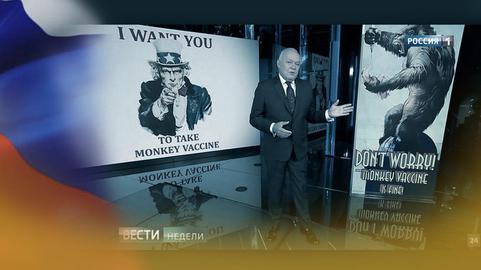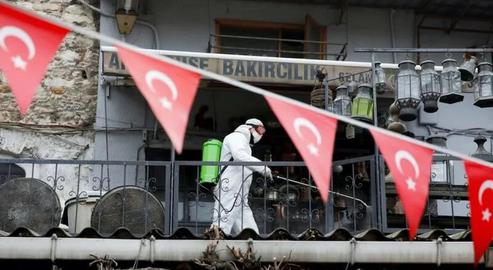Emil Filtenborg and Stefan Weichert are independent journalists based in Ukraine. In a weekly series for IranWire, they examine the landscape of disinformation in Russia and some of the false information that has emanated from the country since the outbreak of coronavirus.
In a new report, leading experts on disinformation from the Center for European Policy Analysis (CEPA) and The Atlantic Council have called on democracies to go on the offensive and be more “pro-active” in the fight against disinformation. Russia, the report states, is far from the only actors on the international information battleground; China, the Chinese Communist Party and smaller countries like Iran have also pitched into the battle of online narratives for the past year, posing a “serious threat to the integrity of democratic systems.”
The authors of the report are former US ambassador Daniel Fried and Alina Polyakova, president and CEO of CEP. They do not encourage democratic countries to spread disinformation themselves but do suggest they step up their game. The steps that need to be take, they claim, involve creating cyber-tools “to identify and disrupt foreign disinformation,” imposing sanctions on creators and distributors of disinformation, and supporting independent media outlets.
These “forms of offense”, they said, could challenge regimes that use disinformation in “strategic ways”: “Vladimir Putin’s regime in Russia seems to use disinformation to weaken its democratic adversaries by attacking their social cohesion; democratic countries can answer this through support for free media inside Russia, China, and other purveyors of disinformation (...) The principle of remaining true to democratic values holds as much for offensive as for defensive options. We must not become them to fight them.”
The good news is, though, is that public and political awareness of disinformation is growing in democracies. The report lists several related policies implemented by states and governmental bodies and mentions disinformation as a growing subject of research. “Early responders from frontline states, such as the Baltic Elves and Ukraine’s StopFake, are now part of a large global network of universities, think tanks, nonprofit research groups, consultancies, and independent media organizations,” it adds.
The bad news is that the disinformation threat is “rapidly evolving.” The use of artificial intelligence and “deep fakes” is progressing too fast to be neutralized in real time; meanwhile, local proxies are now being used to spread disinformation on behalf of foreign states.
Looking Back at Covid-19 Disinformation
In another report, the European External Action Service (EEAS) has appraised the landscape of disinformation from May through to November 2020, focusing on Covid-19-related related mis- and disinformation. While EEAS is not a wholly objective group, it is accurate in its assessment that “the spread and reach of mis- and disinformation online remains worryingly high” – while acknowledging that a “lack of tools and access to relevant data hinders research to estimate its direct impact on human behavior.”
Disinformation directly related to Covid-19 decreased later in the year, the report claims, but coronavirus-linked propaganda is still ongoing. “State actors like China and Russia,” it states, “are maximizing the effect of so-called ‘vaccine diplomacy’ (...) most likely with the intent to enhance their reputation and economic positions abroad.”
Pro-Kremlin outlets continue to undermine other countries’ handling of the COVID19 crisis through downplaying the threat of the virus, it adds. Russian state-controlled media continue to praise how Russia is handling the pandemic while slamming the way Europe has approached the crisis. At the same time, they praise the Russia-made Sputnik vaccine while attempting to discredit the vaccines produced by Moderna and Pfizer-Biontech. Anti-mask narratives being touted abroad are also being amplified in an apparent attempt to hamper public health interventions in other sovereign states.
One of the most important tools to combat disinformation, both reports state, is resilience against it in the population. Earlier in our series, IranWire previously published a guide to spotting disinformation online.
Nothing New Under the Sun
While Covid-19 continues to draw media coverage and attention, other disingenuous narratives are still being spread by pro-Kremlin outlets. These include the bizarre claim, for instance, that the poisoning of Russian opposition politician Alexei Navalny resulted in Germany violating the Chemical Weapons Convention.
The court case into the downing of MH17, the Malaysian passenger plane shot down over Eastern Ukraine, which killed all 298 people aboard the flight, has also been portrayed as an attempt to smear Russia.
In a particularly sinister article, News Front claimed that Holodomor, a famine in Ukraine in the early 1930s that killed at least 3 million Ukrainians, was “hype” invented by Ukraine “to which there is no plot.” In the article, the writer Andrei Chervonets does acknowledge that a famine took place, but says it happened because of a mix of Western sabotage and Ukrainian incompetence – rather than the failed policies of Joseph Stalin, the General Secretary of the Communist Party at the time and thereby the leader of the Soviet Union. The article was strategically published on December 1, three days after the Ukrainian Day of Remembrance of Holodomor Victims.
visit the accountability section
In this section of Iran Wire, you can contact the officials and launch your campaign for various problems

























comments